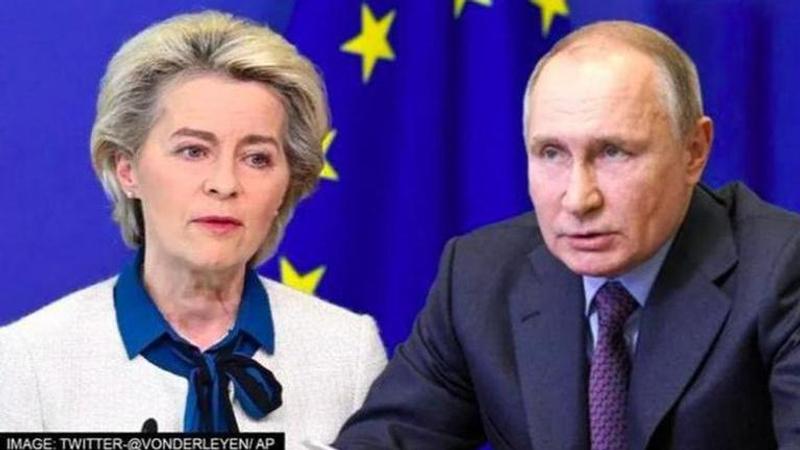Published 19:21 IST, August 5th 2022
EU announces embargo on Russian coal purchases to come into effect from August 10
"EU has made it clear that reducing our dependence on energy imports from Russia is an urgent imperative," the European Union iterated in a statement.

The European Union on Friday announced that its embargo on Russian coal will come into effect on August 10 "as planned" as proposed in its fifth package of restrictive measures against Russia for its brutal invasion of Ukraine. EU urged all the member states to adhere to the ban despite the ongoing energy crisis. "These sanctions will further contribute to ramping up economic pressure on the Kremlin and cripple its ability to finance its invasion of Ukraine," the European Union stated in a release.
At a press briefing, separately, European Commission Spokesman Eric Mamer declared that the coal import ban on Moscow was agreed upon in April by the EU and will come into effect on August 10. "It is the end of the period for the import of Russian coal and no further exemption will apply," he stressed.
EU announced the import ban "on all forms of Russian coal." This would affect nearly one-fourth of all Russian coal exports, amounting to around €8 billion loss of revenue per year for Russia which could weaken its resolve in Ukraine.
Economic sanctions 'to cut even deeper' into the Russian economy
The coal ban is a part of the broader economic sanctions "to cut even deeper" into the Russian economy and has been coordinated with international partners, according to the EU. In addition to it, the Commission and the European Economic Area States (EEAS) took restrictive measures such as the ban on Russian oil imports and reflected on other economic repercussions on Russian Federation as suggested by the member states. EU dismissed Russia from tax exemption services and from specific payment channels such as escrow accounts under the EU nations' Escrow Wallet Service.
"EU has made it clear that reducing our dependence on energy imports from Russia is an urgent imperative," the European Union iterated. It added that the package included strategies "to reduce dependence on Russian fossil fuels as soon as possible."
EU also cautioned that the bloc members face a risk of total gas supply cuts from Russia due to the Kremlin's weaponisation of gas exports. As almost half of the Member States have been already affected by reduced deliveries, the bloc urged countries to conserve energy in order to reduce both the risk and the costs for Europe in case of further or full disruption, strengthening European energy resilience. EU introduced a new legislative tool and a European Gas Demand Reduction Plan, to reduce gas use in Europe by 15% until next spring. All consumers, public administrations, households, owners of public buildings, power suppliers and industry have been advised to resort to strict measures to save gas.
Italy, under the bill, launched “operation thermostat” restricting the air conditioning to a limited use not lower than 25C from next month inwards to help the country deter the looming energy crisis exacerbated by Russia's conflict in Ukraine. EU member states are developing “new” natural gas ventures and self-reliant fossil fuel use to reduce dependence on Russian energy.
Updated 19:40 IST, August 5th 2022




